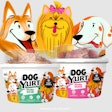
On April 13, Champion Petfoods filed a motion to dismiss a class action lawsuit alleging that Acana and Orijen dog foods contain unhealthy levels of the heavy metals arsenic, mercury, lead, cadmium, along with bisphenol A (BPA).
“These allegations are baseless, and our motion today contends that the Complaint fails to establish a plausible basis to allow the plaintiffs to move forward with their lawsuits,” wrote Champion Petfoods representatives in a letter to customers posted on Facebook. “In the coming weeks, we will file motions to dismiss the other frivolous lawsuits.”
Champion’s lawyers seek to dismiss the class action complaint filed by plaintiff Kellie Loeb, stating that the purported complaint lacks standing and fails to “state a claim upon which relief can be granted,” according to court documents.
Champion pointed to a white paper the company produced, and which the plaintiff cited, that noted the “miniscule levels of naturally occurring heavy metals” in Champion’s dog food. The white paper stated that third party testing concluded that these naturally occurring levels of heavy metals are below the level that could endanger dogs.
Background of lawsuit against Champion
Champion Petfoods faces a class action lawsuit filed in a California district court by plaintiffs from Florida, Minnesota and California. The lawsuit claims that Champion’s Acana and Orijen dog foods contain the heavy metals arsenic, mercury, lead, cadmium, along with bisphenol A (BPA), according to court documents.
However, the amounts of the heavy metals were in the microgram per kilogram range, which may be below tolerable levels established by the National Research Council. BPA in the dog foods also registered in the microgram per kilogram range. No safe level for daily consumption of BPA has been established for pets, reported Kansas State University professor Greg Aldrich, PhD, in Petfood Industry. He presented a 1984 Environmental Protection Agency study in Beagles, which reported that feeding 9,000 milligrams per kilogram of BPA for 90 days resulted in increased liver weight but had no observed effects at lesser amounts.
Nevertheless, the plaintiffs allege that the presence of the heavy metals and BPA is an example of Champion’s “negligent, reckless, and/or intentional practice of misrepresenting and failing to fully disclose the presence” of the chemicals.
The lawsuit points out that Orijen and Acana are both marketed as biologically appropriate pet foods, mirroring that of a wolf, and containing nothing that “nature did not intend for your dog to eat.” This marketing claim implies that Champion ensures that their dog foods do not contain heavy metals or the controversial chemical BPA.
Heavy metals unavoidable in nature
However, small quantities of heavy metals may be unavoidable in foods sourced from farms or the wildreness.
“Mercury is present to varying degrees in water, air and soil, making its presence unavoidable,” Anne Norris, United States Food and Drug Administration (FDA) health communications specialist, told Petfood Industry in an email related to another issue. “Although the FDA has not issued specific guidance or set levels for mercury, any level of a substance in pet food must be safe for the animal and it is the manufacturer’s responsibility to ensure the safety of its product. The agency can take action if it has a safety concern.”
More on BPA in pet food
BPA is used to line metal pet food containers. The US Food and Drug Administration considers BPA safe at the levels human adults consume in their foods, although FDA continues to evaluate the chemical’s effects at low levels.
Some scientists have raised concerns that even tiny amounts of BPA can influence human health. Public concern led to the widespread abandonment of BPA for use in products meant for babies and children, including baby bottles and sippy cups.
Thermal processing temperature, makeup of the product contents, repeated container uses and pH swings are known to increase the amount of BPA that leaches from plastics, wrote Aldrich. Some researchers are concerned that BPA can leach out of the plastic resin in the can into wet pet food and over a lifetime of feeding have ill effects.
That BPA reported in the Champion dry dog food products was unexplained in the lawsuit.
Plaintiffs' demands in lawsuit against Champion
The lawsuit seeks to stop Champion from selling their products until the heavy metals are removed or their presence is disclosed on all packaging and advertising, along with an ad campaign retracting previous statements of the pet foods’ safety or naturalness. Champion would be enjoined from marketing their products in a manner that implies it is healthy, natural or safe. The lawsuit also seeks financial remuneration from Champion for all revenues from the dog foods, among other demands.
“The allegations contained within a class action complaint that was brought against us are meritless and based on misinterpretation of the data," a Champion Petfoods spokeperson told Petfood Industry. "Pet lovers and our partners can be assured that our products are safe and that we systematically test our products at two third-party laboratories using the official methods of analysis by Association of Analytical Communities (AOAC). We will comprehensively refute the wide range of false allegations in a court of law at the appropriate date. We are confident that we will prevail as the facts and evidence are presented to the court. These baseless claims will not deter us from our mission of delivering award-winning biologically appropriate foods to pet lovers.”
















